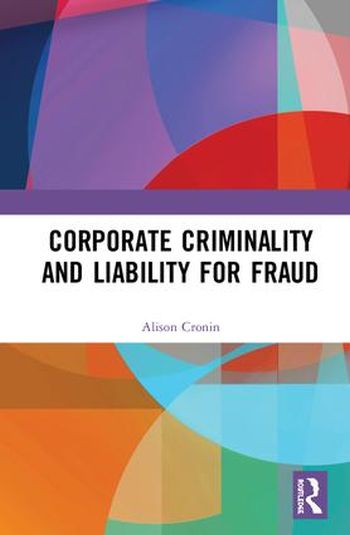
Through a rational reconstruction of orthodox legal principles, and reference to cutting-edge neuro-science, this book reveals some startling truths about the criminal law, its history and the fundamental doctrines that underpin the attribution of criminal fault. While this has important implications for the criminal law generally, the focus of this work is the development of a theory of corporate criminality that accords with modern theory of group agency, itself informed by advancements in contemporary philosophy and social science. The innovation it proposes is the theoretical and practical means by which criminal fault can be attributed directly to the corporate actor, where liability cannot or should not be reduced to its individual members.